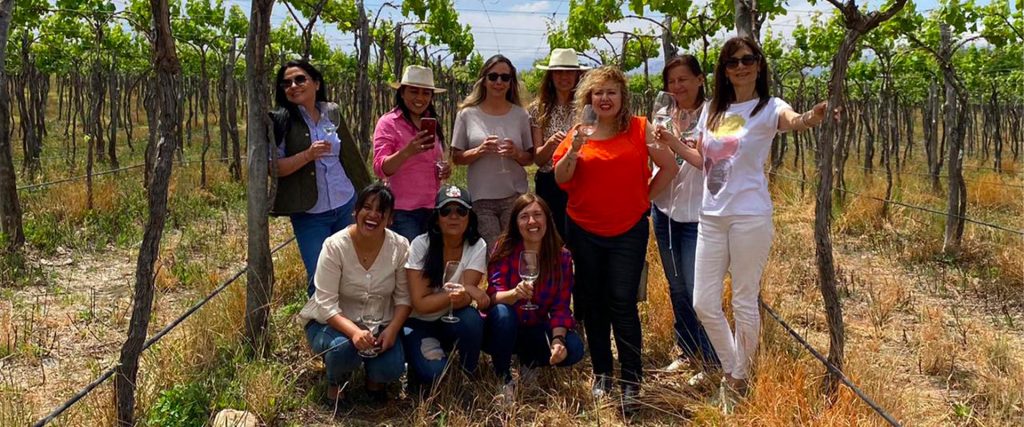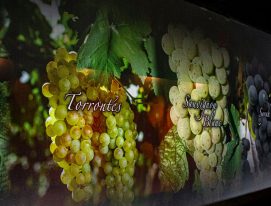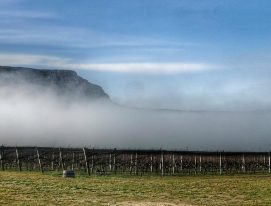Carla Dal Borgo, a professional biologist and the Head of Institutional Relations and the Department of Social Responsibility at Bodega Dal Borgo in Animaná, Salta, is also the President of the Association of Women in Salta Wine.
Created in May 2019, the Association arose out of a meeting to enhance the positioning of high-altitude wine on the World Malbec Day of 2018. “A lot of women were there: distributors, salespeople, wine store owners, winery owners and workers, communicators and producers. And we decided to band together because we could see that a space was needed not just to promote our wine but also to promote the work of women in the wine industry. The Association was initially created to facilitate communication between women in the world of viticulture,” says Carla.
Together with Wines of Argentina, the Association signed up to the Women’s Empowerment Principles (WEPs), an initiative launched by UN Women and the Global Pact of Nations in 2010 in order to promote gender equality in businesses, the workplace and the communities where they operate.
Representing the organization, Carla Dal Borgo also spoke at the Viticulture Round Table at the most recent Regional Salta Conference organized by the Government of the City of Buenos Aires (which also featured a workshop in inclusive business policies). We caught up with her there.
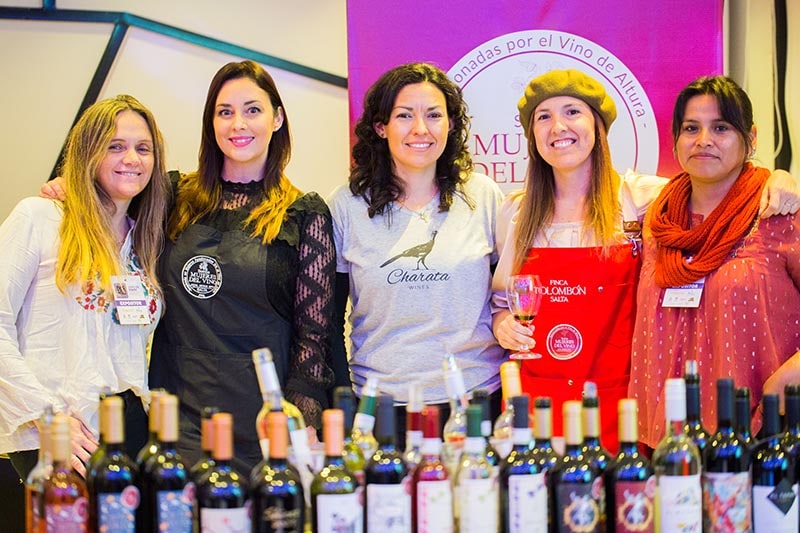
The Association of Women in Salta Wine
How have the objectives of the Association of Women in Salta Wine evolved over the past three years?
Well, we set out to empower the development and increase visibility of the role of women in the industry and also to promote the positioning of high-altitude wines. We’ve also begun adding professionals from Tucumán, because we cover the entire Calchaquí Valley. We want to promote our high-altitude wines and local and regional development. Those are our two main objectives.
What activities do you organize?
We run our own training programs which in addition to improving skills also help us to stay connected and to learn from one another. Some of these activities are also open to the general public and include tastings, talks and other activities.
We always make sure we have a presence at important events liked World Malbec Day and Torrontés Week to spread awareness about our varieties and how they develop in the region. Every year, we’ve also organized a project related to social responsibility. For example, we might work with a company on a program called “Women who leave their mark” involving a call for entries for women entrepreneurs, it doesn’t matter whether their project is large or small. They’re given business tools, help with their business plan, promoting their products and developing their social networks, among other things.
Principally, these are tools that help to empower the development of women. Of course, we don’t exclude men; quite the contrary, the training is available to anyone interested.
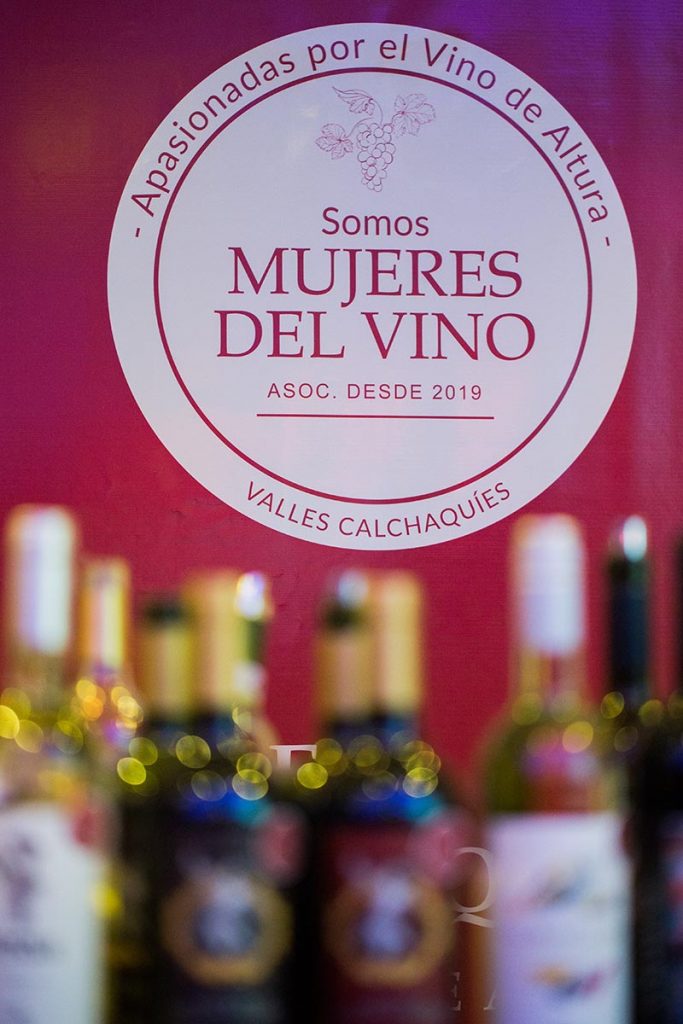
Who are the Women in Salta Wine members?
We have about 40 members, sommeliers, communicators, experts in tourism, winery owners and workers, a little of everything. We initially came together out of a shared affinity but we’re going to implement a formal membership program to open more room for women who might not be directly connected to the wine industry but are involved in some aspect of it, such as the gastronomy industry, tourism and service industries, etc.
Historically, what roles have women played in the wine industry in Salta?
Generally, men were always more visible but there have always been women harvesters, women involved in the oenology, at the wineries, in the agricultural sector. Our great inspiration, who was a founding member of the Association, was Nelly Murga de Córdova, the owner of the Vasija Secreta winery. She also founded the Winery Association of Salta. She was a pioneer.
Today, women are more visible, they take professional degrees in agriculture and oenology. In the past they did all that but without a degree. They’ve always been at the winery, working with the professional winery owners and workers while also taking care of their children, they’ve always had an important role. They’re administrators, run the family business, their vision and support is and always has been fundamental.
There are also plenty of women whose projects aren’t very well known, so the Association gives them help to make them better known. For example, Raquel Humano is a tourism expert and is studying sommellerie, and she has a family project called Inicios here in Cafayate which she presented at the last wine fair in Bariloche. It was very well received. That’s just an example, fortunately there are plenty more.
Is the number of women professionals increasing in the wine industry in Salta?
Yes, the province provides a range of courses to study oenology and agronomy at the Universidad Nacional de Salta, and the Wine Institute Salta and plenty of woman have taken them. The good thing about all this is they’re setting a professional example to the local people, because they can study without having to go to Mendoza as was true before. Now they can study and work in the local area. Also, Salta is gradually beginning to appreciate the role of sommeliers, and understanding the role played by communicators, which is fundamental for both the wineries and in the gastronomic industry.
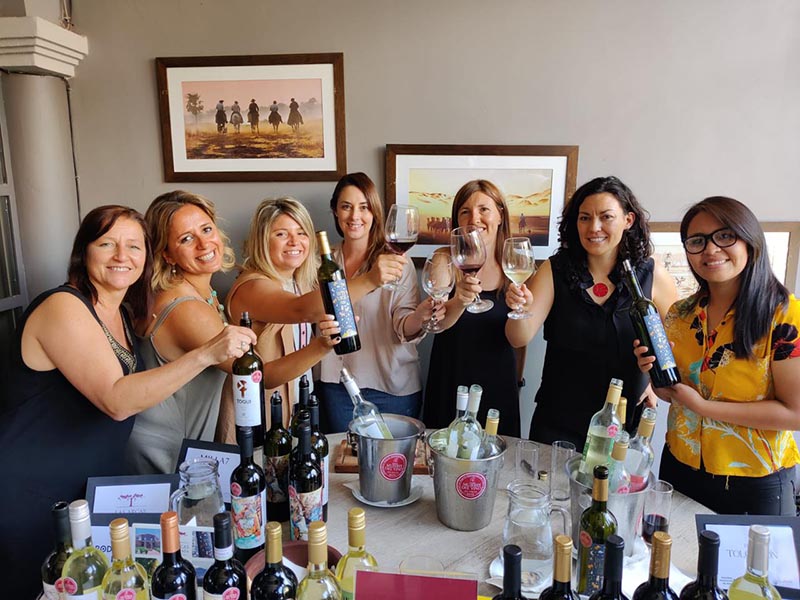
What projects does the Association of Women in Salta Wine have planned?
We want to open the doors to the community because wine is a product that connects many things, it promotes regional development. We will continue to provide training, for example we ran a program focused on Torrontés for people in the service industry and restaurants to teach them about everything that can be communicated when a glass is served, all the stories behind the grape, to give people an experience at the restaurant, which undoubtedly offers added value.
Not just Torrontés, but also Malbec and other varieties, explaining why they have such unique expressions, so different from other regions. Wine has great cultural, economic and symbolic importance. This is our contribution and we’re going to keep expanding on it.

